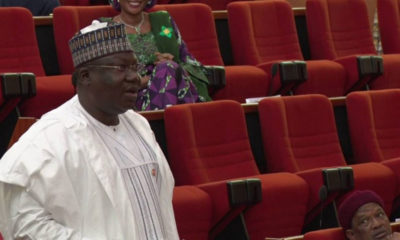The latest NielsenIQ Africa Prospects Indicator (APi) report Recalibrating for an Unprecedented Future which looks at the prospects of key countries across Sub-Saharan Africa (SSA) has revealed that despite the unprecedented times in which we live, there are pockets of positivity to drive businesses through the COVID-19 storm.
Commenting on the results of the tenth edition of the APi NielsenIQ Global Intelligence Unit Executive Director Ailsa Wingfield says; “As countries deal with second and third waves and virus mutations, the evidence of significant economic, employment and social effects are manifesting in permanent, changed consumer behaviour as lingering pandemic effects have shaped adjusted circumstances, attitudes and needs that will persist in 2021.”
Top country prospects
To understand the broader context of this phenomenon, the APi ranks the top country prospects in SSA based on combined economic, business, consumer and retail indicators. Kenya has achieved top spot in the latest report amidst the 2020 pandemic period, with its annual economic growth outlook positive at +1%, owing to Kenya’s more diversified economy, and more favourable business and consumer indicators.
The second highest-ranking country is Tanzania which achieved the biggest change in rank, rising to second place. After reclaiming the top position at the end of 2019, Nigeria drops to third place, with its economic prospects having been dampened by lower oil prices, increased fuel prices and rising inflation, together with weaker retail prospects.
Ghana is in joint third position and is expected to continue its long-term advances and outperform the regional economic growth average in 2021, buoyed by rising demand for its commodity exports and supportive macro-economic conditions which will facilitate investment and private consumption increases.
South Africa drops one place in the top five, having operated under severe containment measures with one of the strictest global lockdowns impacting the GDP contraction by 6% year-on-year into the third quarter of 2020. Cote d’Ivoire, Uganda and Cameroon rankings remained unchanged amidst the pandemic period. While the Ivorian GDP growth forecast is amongst the highest in the region, it is offset by weak consumer prospects with 69% of retailers reporting a decrease in consumer spending and only 11% of consumers willing to try new products.
The weak business outlook also poses a challenge for Uganda and Cameroon as companies may look to de-prioritise operations in these markets to reallocate resources to top priority markets. Wingfield points out that; “Despite weaker business and economic outlooks also characterising the more established economies of Nigeria, Kenya and South Africa, the reality is that serious investors have to focus on them if they are to achieve significant growth in the region.”
The importance of these proven prospects is borne out by the fact that ‘own business growth expectations’ (how businesses rate their own prospects) have fallen across SSA but are more optimistic than country growth expectations. The biggest differential between these two indicators is in South Africa and Kenya, a clear indication that businesses in these two markets remain firm in their view that favourable growth is achievable, despite adverse macro factors.
In addition, only one in five companies expects value growth declines in the next year. The majority of businesses forecast muted growth between 0 and 5%, but one third (36%) of businesses are more optimistic, predicting their own business growth levels ahead of 5% in 2021 and a sizable 17% of businesses anticipate growth ahead of 10% in 2021 – predominantly in West Africa.
West Africa: Nigeria, Ghana, Cameroon, Cote d’Ivoire, East Africa: Kenya, Uganda, Tanzania, Ethiopia
Key challenges
However, turning this optimism into reality will require the elimination of a variety of bottlenecks. For example, the APi report cites overcoming supply constraints as the top factor that has impacted business performance amidst the COVID-19 pandemic and will be key to achieving any significant growth upturn. Closely related to this is product availability and out of stock issues, followed by retail closures and slow reopening.
Wingfield comments; “Many of these factors will remain obstacles in 2021 as resources and logistics remain constricted, especially for imported products. Manufacturers and retailers could face further share fallout as consumers substitute brands and stores for available alternatives, however, this could also work in favour of local origin brands and products, and informal retail.”
Within this reality, a key question will be how businesses pivot and position themselves to overcome these challenges to achieve growth, what level of growth they will aim for and what they intend to focus on to achieve this growth? The APi report shows that the largest proportion, one in five companies, is initiating a strategic business refocus or reprioritisation to reboot their performance in the year ahead.
Sixteen percent are adjusting their route to market/channel/distribution focus and 14% will modify their price and promotion strategies and rationalise their product portfolios to only the most needed products, while only 5% are looking to increase their technology and online investments, despite the massive move to online shopping.
Basket unusual
A critical part of any business success is the needs and wants of the consumers who drive its growth. Income impacts have driven spend redistribution, with consumers compelled to rethink what goes into their baskets as they seek to stretch their spend further while merging old and new needs.
These adjustments reflect a fundamental consumption reset, with consumers carefully evaluating their overall spend and the products that make up their “usual” basket composition. Evidence of this is that across SSA the proportion of consumers spending more in-store has dropped to just 12% (from 21% pre COVID-19), and those willing to try new products has dropped to only a quarter of consumers.
“No matter whether consumers are constrained, insulated or gain access to a vaccine in 2021, they will remain less optimistic about what the future holds. Decisions will be made to adjust the purchase habits shoppers have had in place for years, alongside the current reality where health and value priorities compete side by side. This will impact where consumers shop, what they buy, why they buy and how much they are willing to spend in 2021 and well beyond,” Wingfield concludes.

 Forex3 weeks ago
Forex3 weeks ago


 Naira2 weeks ago
Naira2 weeks ago
 Billionaire Watch2 weeks ago
Billionaire Watch2 weeks ago




 Naira2 weeks ago
Naira2 weeks ago




 Naira2 weeks ago
Naira2 weeks ago




 Naira1 week ago
Naira1 week ago




 Naira4 weeks ago
Naira4 weeks ago




 Naira3 weeks ago
Naira3 weeks ago
















